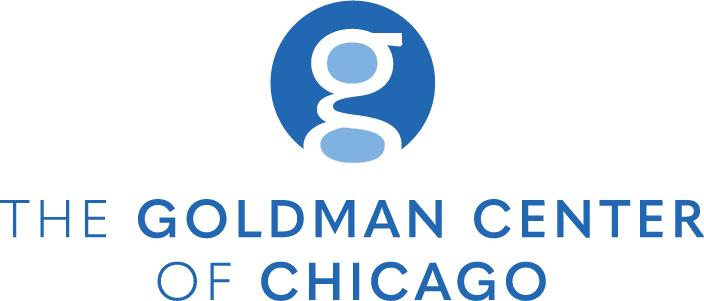Fetal Alcohol Spectrum Disorders (FASDs) represent a range of physical, behavioral, and cognitive impairments that can occur when a child is exposed to alcohol in utero. These challenges can affect a child’s development, learning, and social interactions. For parents, educators, and healthcare professionals, understanding how to support children with FASDs is essential to fostering their growth and ensuring they reach their full potential.
At The Goldman Center of Chicago, we specialize in providing comprehensive assessments and tailored support for children facing developmental challenges, including FASDs. This article will delve into what FASDs are, their impact on children, and strategies for creating supportive environments at home, in school, and in therapeutic settings.
What Are Fetal Alcohol Spectrum Disorders (FASDs)?
FASDs are a group of conditions that arise from prenatal alcohol exposure. The effects of alcohol on a developing fetus can vary depending on factors such as the timing and amount of exposure. While no two children with FASDs are the same, they often experience difficulties in several areas, including:
- Physical Development: Growth deficiencies, distinctive facial features, and issues with coordination and motor skills.
- Cognitive Abilities: Challenges with attention, memory, problem-solving, and learning.
- Behavioral and Social Skills: Difficulty with impulse control, understanding social cues, and forming relationships with peers.
While FASDs can present lifelong challenges, early intervention and targeted support can help children develop the skills they need to lead fulfilling lives.
Recognizing the Signs of FASDs
Recognizing the early signs of FASDs is crucial in ensuring children receive the appropriate interventions as soon as possible. Common signs may include:
- Developmental Delays: Children may reach developmental milestones later than their peers, such as walking, talking, or self-care tasks.
- Learning Difficulties: Difficulty with attention, memory, and processing information can impact academic performance.
- Behavioral Concerns: Children with FASDs may struggle with regulating their emotions, controlling impulses, and maintaining focus in structured environments.
- Physical Symptoms: Some children with FASDs may have distinct facial features, such as a smooth ridge between the nose and upper lip, smaller head size, or shorter height.
If you suspect your child may be experiencing symptoms of FASDs, it’s important to seek a professional diagnostic evaluation. The Goldman Center of Chicago offers comprehensive assessments to help identify FASDs and create personalized care plans.
The Importance of Early Intervention
Early intervention is key to supporting children with FASDs. By addressing developmental, cognitive, and behavioral concerns early on, children have a better chance of overcoming challenges and developing essential skills for success. Interventions may include:
- Therapies: Occupational therapy, speech therapy, and behavioral therapy can help children improve motor skills, communication, and social interactions.
- Special Education: Children with FASDs often benefit from individualized education plans (IEPs) tailored to their learning needs, including accommodations in the classroom, specialized instruction, and extra support.
- Family Support: Parents and caregivers play a crucial role in creating a nurturing and structured environment at home. Parenting strategies that emphasize consistency, patience, and positive reinforcement can make a significant difference in a child’s progress.
At The Goldman Center of Chicago, we offer a range of therapeutic services designed to support children with FASDs and their families, ensuring that every child has access to the resources they need.
Strategies for Supporting Children with FASDs
Whether at home, in school, or in the community, children with FASDs require a structured and supportive environment to thrive. Here are some key strategies for supporting them:
- Establish Clear Routines: Consistency is vital for children with FASDs. Establishing clear daily routines can help reduce anxiety and improve focus. Visual schedules, checklists, and timers can assist children in staying on task and understanding what to expect next.
- Break Down Tasks: Complex tasks can be overwhelming for children with FASDs. Breaking them down into smaller, manageable steps can make learning new skills easier. Provide clear, simple instructions and offer praise or rewards for each step completed.
- Create a Safe and Supportive Environment: Children with FASDs may experience sensory sensitivities or emotional outbursts. Creating a calm, structured environment at home and in the classroom can help minimize distractions and overstimulation. Consider using sensory-friendly tools, such as weighted blankets or noise-canceling headphones.
- Promote Positive Social Skills: Social interactions can be challenging for children with FASDs, as they may struggle with understanding social cues and building relationships. Role-playing, social stories, and practicing appropriate behaviors in a supportive setting can help improve social skills over time.
- Collaborate with Educators and Therapists: Supporting a child with FASDs requires collaboration between parents, educators, and therapists. Regular communication with your child’s teachers, school counselors, and healthcare providers ensures that everyone is aligned on your child’s goals and progress.
The Role of Educators in Supporting Children with FASDs
Teachers play a significant role in helping children with FASDs succeed in school. By understanding the unique challenges these children face and implementing tailored strategies in the classroom, educators can create an inclusive learning environment. Here are some effective classroom strategies:
- Use Multi-Sensory Learning Approaches: Children with FASDs often benefit from hands-on learning that engages multiple senses. Incorporating visual aids, manipulatives, and movement-based activities can help reinforce concepts and improve retention.
- Provide Extra Time for Tasks: Since children with FASDs may need more time to process information, offering extended time for assignments and tests is essential. Breaking assignments into smaller parts with clear deadlines can also help keep students on track.
- Offer Positive Reinforcement: Positive reinforcement, such as praise or rewards, can encourage good behavior and academic progress. It’s important to recognize and celebrate small achievements to boost confidence and motivation.
How The Goldman Center of Chicago Can Help
At The Goldman Center of Chicago, we are committed to supporting children with FASDs and their families. Our team of experienced professionals offers comprehensive diagnostic evaluations, personalized therapeutic services, and ongoing support to help children overcome challenges and reach their full potential.
We take a holistic approach to care, working closely with parents, educators, and healthcare providers to develop tailored interventions that meet each child’s unique needs. Whether your child is just starting on their developmental journey or you’re seeking additional support, The Goldman Center is here to guide you every step of the way.
Conclusion
Supporting children with Fetal Alcohol Spectrum Disorders (FASDs) requires patience, understanding, and a team-based approach. By identifying their unique strengths and challenges and providing early intervention, children with FASDs can grow into confident and capable individuals.
If you’re concerned that your child may have FASDs or you’re seeking expert guidance, contact The Goldman Center of Chicago today. Our team is ready to provide the support your family needs, helping your child thrive in every aspect of life.









